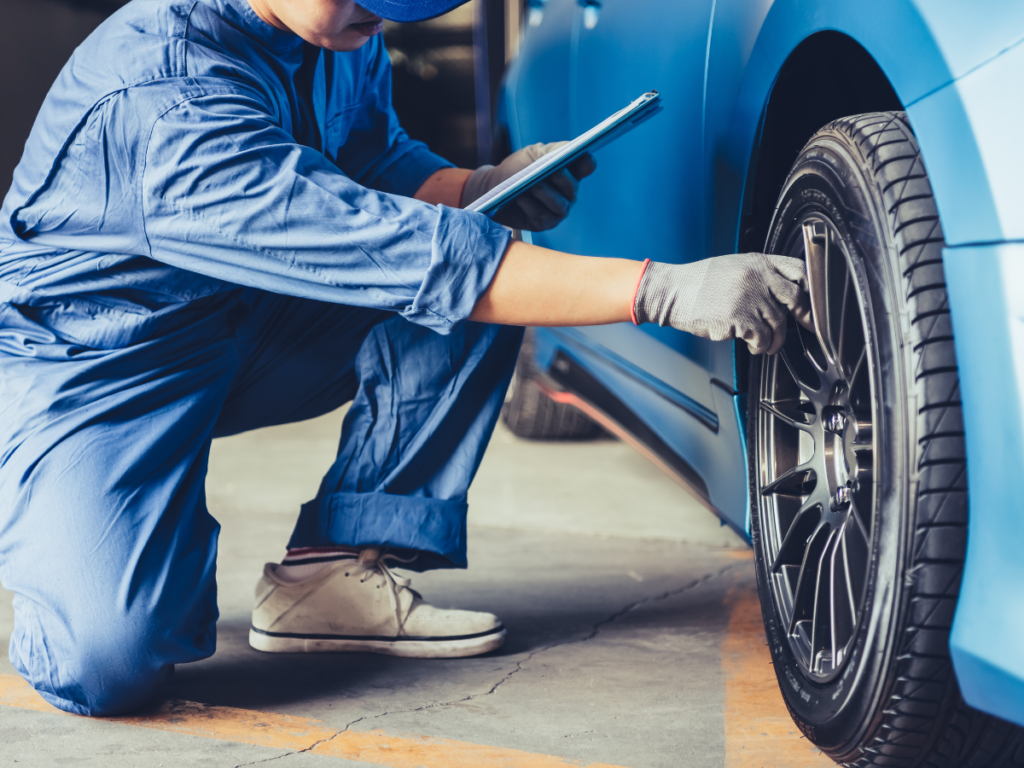How safe is your car? Understanding your car’s safety ratings

Ready for some good news? Cars are a lot safer today than they used to be, and they continue to get safer every year. Car makers have made tremendous strides thanks to research and new technologies.
The big car makers have invested millions in car safety—spurred by personal injury lawsuits, consumer advocates, government actions, and lobbying by private organizations.
We’re also fortunate to live in a time when there’s a lot of information available about vehicle safety that can easily be found online and on new car showroom stickers.
Understanding how your car’s safety ratings are determined can help you make smart decisions to protect yourself and your family.
Are cars really safer now?
Yes, but for a long time, big automakers weren’t as concerned about auto safety. They just wanted to make cars that looked good and went fast. This attitude was summed up by the title of consumer advocate Ralph Nader’s book about the 1965 Chevy Corvair, “Unsafe at Any Speed.”
Today’s cars are designed with much more safety in mind. As one example, not long ago, a front-end crash would typically cause the car’s engine to crush the vehicle’s occupants. But now, cars are engineered using unibody construction, which protects passengers by redirecting the force of impact.
Where can I get reliable safety information?
Two major organizations provide valuable consumer information by testing vehicles and issuing safety ratings: the National Highway Transportation Safety Administration (NHTSA) and the Insurance Institute for Highway Safety (IIHS).
What does an NHTSA vehicle safety rating mean?
The National Highway Transportation Safety Administration (NHTSA) is a federal agency focused on transportation safety in the United States. The NHTSA develops and enforces vehicle safety standards and regulations.
NHTSA uses a five-star safety rating system—the more stars a car is given, the safer it’s been rated. You can look up your car here.
The NHTSA conducts safety tests to determine the probability of injury in different types of accidents. New vehicles are safety-rated for side collisions, frontal collisions, and rollover resistance.
Further, to help keep you and your passengers safe when you’re out on the road, the NHTSA recommends cars with these features:
- Forward collision warning,
- Lane departure warning,
- Crash imminent braking,
- Tire-pressure monitoring systems (TPMS),
- Rearview cameras,
- Dynamic brake support that automatically supplements the driver’s braking if you don’t push hard enough to avoid a crash.
How does the IIHS give vehicles a safety rating?
Unlike the NHTSA, the Insurance Institute for Highway Safety (IIHS) is not part of a governmental agency. The IIHS is a nonprofit scientific and educational organization that does independent auto safety research and advocates for safer vehicle development.
All vehicles chosen for IIHS testing are anonymously purchased to prevent automakers from manipulating the results. The IIHS bases its vehicle ratings on factors like crashworthiness, crash avoidance, and crash mitigation.
The IIHS also tests for side crash injuries, frontal crash injuries, seat belt reminders, safety cage structures, headlights, forward collision warnings, and auto brakes. The IIHS no longer conducts testing on rollover roof strength and head restraint safety due to improved federal standards and increased vehicle safety in these areas.
The IIHS offers ratings based on their testing.
Were you injured by a careless driver? We’re here to help.
Unfortunately, no matter how safe your car is, anyone can be injured by another careless or reckless driver.
If you’ve been injured in a car accident, you deserve a personal injury lawyer who cares about you and knows how to work wisely for you. At GibsonSingleton Virginia Injury Attorneys, we treat all our clients like neighbors because you are. This isn’t just a job for us—we consider our work to be our calling.
One of our mottoes is “big city experience, small town care.” One reason for this is that both my partner, Ken Gibson, and I have been injured in senseless accidents, so we can empathize with what you’re going through. On top of that, we have both worked in big cities, for big firms, and for the government, so we’ll bring that expertise to your case.
Call us at (804) 413-6777 or toll-free at (855) 781-6777 to learn more about how we can help you. Remember, we do not charge you unless we recover money for you.
Share This Page:
Call our Eastern Virginia office today for a free consultation
at (804) 413-6777 or toll free (855) 781-6777.
It costs you nothing for our firm to represent you. We only get paid when you do. Learn more
Prevention, empathy, and diligence are hallmarks of everything we do at GibsonSingleton Virginia Injury Attorneys. Our community can see these ideals lived out in our work to prevent personal injuries from happening.
- Safety Education
GibsonSingleton launches a “Texts=Wrecks” campaign to reduce the number of people injured or killed by distracted drivers. - Annual Coat Drive
During the fall, our team works to distribute coats to people in need in our community. - Hands-on Service
John and Ken join the Gloucester Point Rotary Club in cleaning up the community. - Supporting Local Schools
The Gibson family participates in Gloucester’s Botetourt Elementary Shuffle fundraiser.
